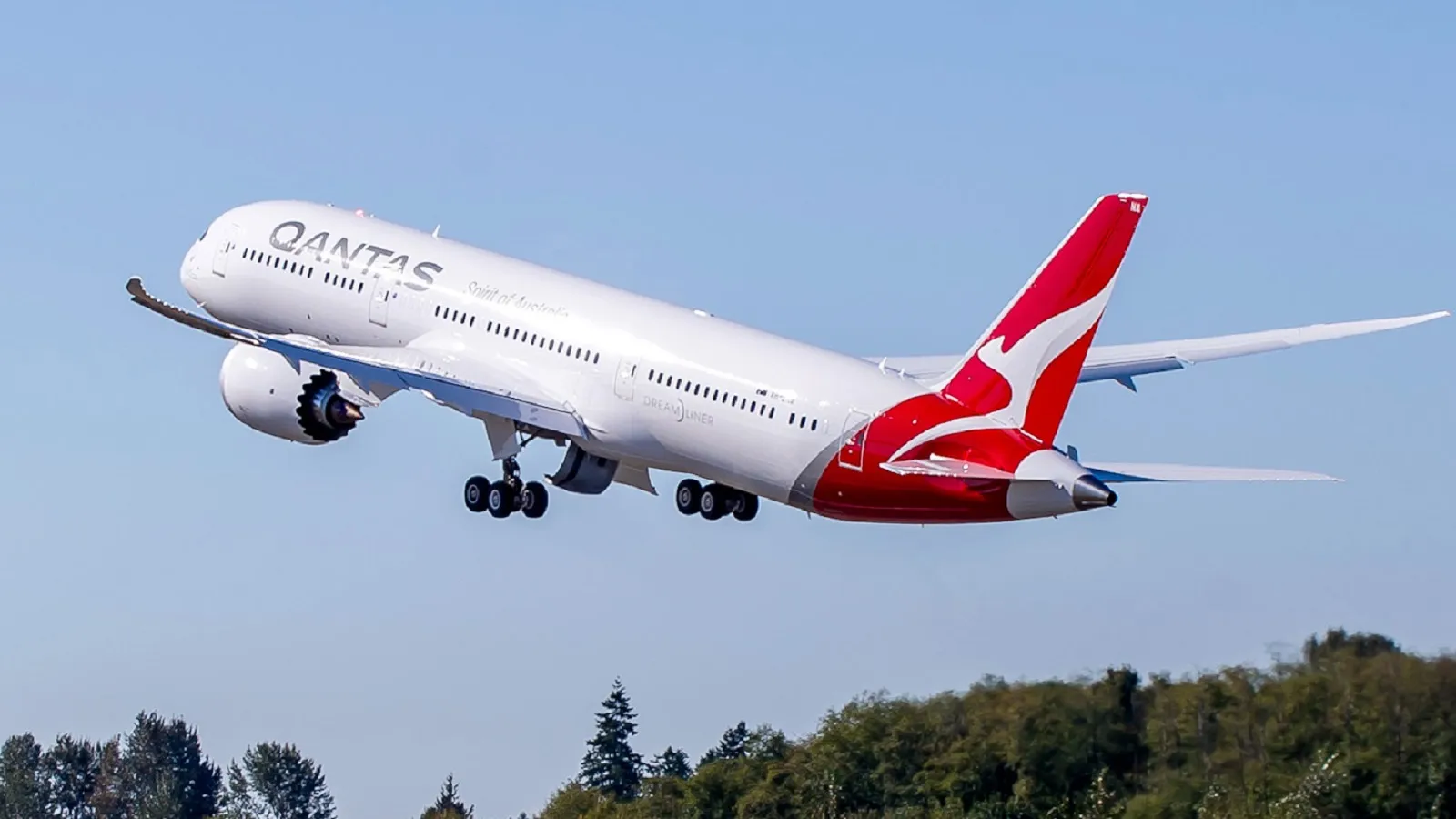
Qantas predicts a rise in first-half profit
Oct 25, 2017

Qantas has announced expectations for a significant increase in its first-half profit, driven by a rebound in travel demand following the easing of pandemic restrictions. The airline's recovery is attributed to strong performance in both domestic and international markets, with increased passenger numbers and higher ticket prices contributing to revenue growth. Additionally, Qantas has implemented cost-saving measures and improved operational efficiency, further enhancing its financial position. Despite challenges such as rising fuel costs, the airline remains optimistic about its profitability as it capitalizes on the growing trend of air travel and expanding consumer confidence.
Qantas' Strong Financial Outlook
Qantas, the flagship airline of Australia, has recently made headlines with its optimistic forecast for the first half of the financial year. The airline predicts a significant rise in profits, a positive indication of its recovery trajectory following the turbulent times brought on by the global pandemic. This forecast is not just a reflection of operational performance but also a response to the increasing consumer confidence in air travel.
Factors Contributing to Increased Profits
Several factors contribute to Qantas' expected rise in profits. First and foremost is the rebound in domestic and international travel demand. As restrictions ease and vaccination rates rise globally, more travelers are eager to book flights. This surge in demand is a welcome sign for Qantas, which has been working diligently to restore its operations and service levels.
Additionally, Qantas has implemented various cost-control measures and operational efficiencies that have helped improve its profit margins. The airline's commitment to enhancing customer experience, coupled with a strategic focus on profitable routes, has positioned it favorably in a competitive market.
Revenue Projections and Passenger Numbers
The projected rise in profit is backed by robust revenue projections. Qantas anticipates that revenue will see a significant uptick compared to the previous year, driven by an increase in passenger numbers. The airline has reported growing bookings, particularly in its premium offerings, which tend to deliver higher margins.
| Quarter | Projected Revenue (AUD) | Passenger Numbers |
|---|---|---|
| Q1 | 1.5 billion | 4 million |
| Q2 | 1.8 billion | 5 million |
Operational Efficiency and Strategic Initiatives
To achieve its ambitious profit targets, Qantas has prioritized operational efficiency. The airline has streamlined its fleet and optimized its flight schedules to ensure that resources are allocated effectively. This strategic initiative not only reduces costs but also enhances the overall travel experience for passengers.
Moreover, Qantas has invested in technology to improve customer service and operational processes. The integration of advanced systems for booking and customer management has allowed the airline to respond more swiftly to market demands, thereby increasing its competitiveness in the aviation sector.
Impact of Global Travel Trends
As Qantas navigates the complexities of the post-pandemic travel landscape, it is also closely monitoring global travel trends. The airline has recognized shifts in traveler preferences, with a noticeable increase in demand for leisure travel. This trend is reflected in the growing interest in holiday destinations, both domestically and internationally.
Qantas has capitalized on this trend by launching new routes and enhancing existing ones to cater to popular tourist destinations. The airline's flexible booking policies and commitment to customer satisfaction have further solidified its reputation as a preferred choice for travelers.
Commitment to Sustainability
In addition to focusing on profitability, Qantas is committed to sustainable practices. The airline has set ambitious targets to reduce its carbon emissions and increase the use of sustainable aviation fuel. This commitment resonates with environmentally conscious travelers and enhances the airline's brand image in a competitive market.
Looking Ahead: Future Projections
As Qantas prepares for the upcoming financial period, the airline remains optimistic about its growth trajectory. Analysts anticipate that the positive momentum will continue, supported by strong demand and effective operational strategies. The airline's proactive approach to managing costs and enhancing customer experience positions it well for long-term success.
Conclusion: A Bright Future for Qantas
In conclusion, Qantas' prediction of a rise in first-half profits is a testament to its resilience and strategic planning. With an eye on operational efficiency, customer satisfaction, and sustainability, the airline is poised to thrive in the evolving landscape of air travel. As the world continues to recover from the impacts of the pandemic, Qantas stands ready to meet the demands of a new generation of travelers.
For those looking to explore travel options, Qantas offers a range of services that cater to various needs, ensuring that passengers have a seamless and enjoyable experience. With its strong financial outlook and commitment to excellence, Qantas is on track for a successful future.
Related Articles

Explore Thailand: The Best Islands to Visit for Paradise, Adventure, and Relaxation

The Ultimate Guide to the Best Islands in Thailand for Your Next Getaway

Do babies need passports? How to get a passport for a newborn

How to get a U.S. passport fast: here’s how to expedite the process

What is Mobile Passport Control: 5 reasons why you should use it

SENTRI vs. Global Entry: A detailed guide

Do you need a passport to go to the Bahamas? Let’s find out

Do you need a passport to go to Mexico? A detailed guide

Do you need a passport to go to Canada? We got the answer

Do You Need a Passport for a Cruise: An Essential Travel Guide

Booster Seat Requirements: All the Rules to Follow in Your Rental Car

What Are the World’s Most Powerful Passports, and How Does Yours Rank?

How to Take a Passport Photo at Home: A Helpful Guide

You've got to have heart! Southwest's new livery

Your opinion: Should water be free on low cost carriers?

Young women bolder than guys as solo travellers
